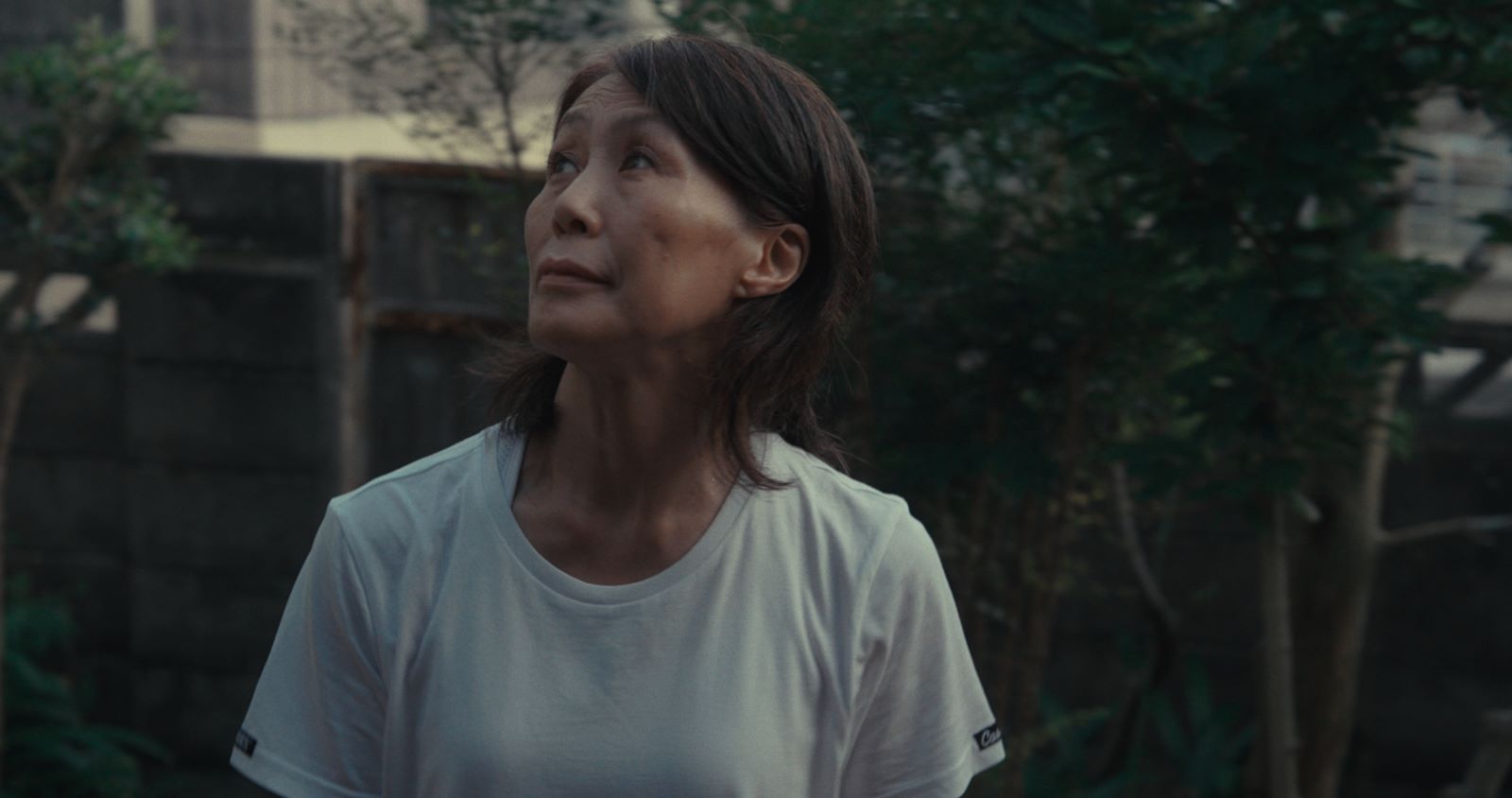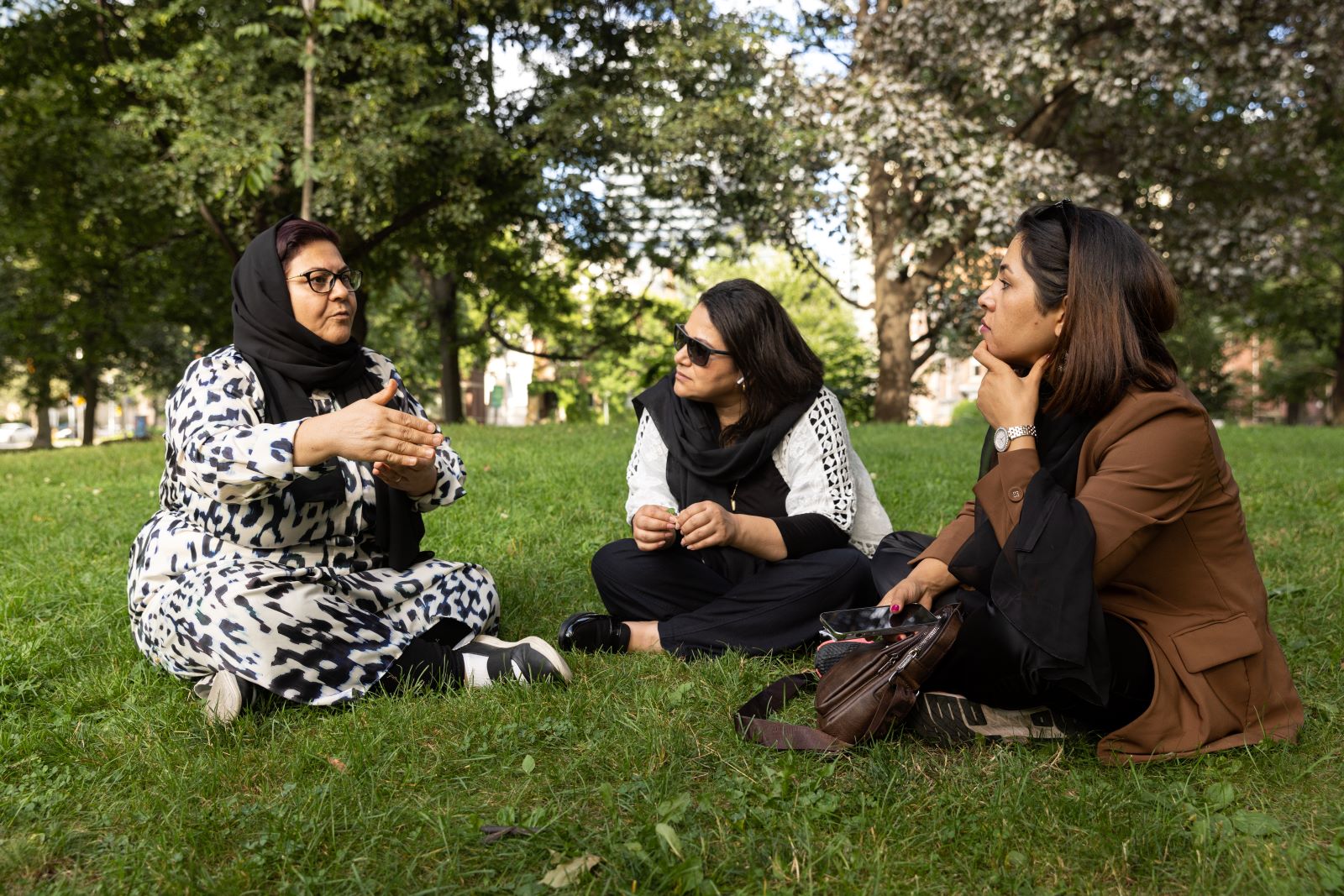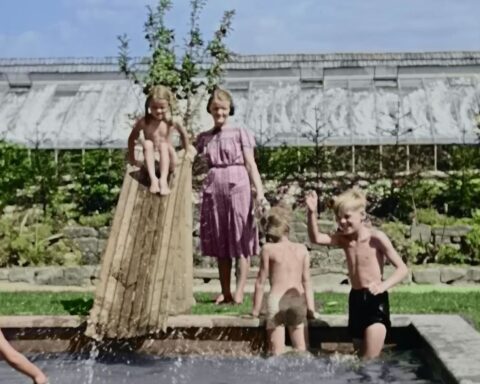Okurimono
(Canada, 96 min.)
Dir. Laurence Lévèsque
Programme: Canadian Spectrum (North American premiere)
A chilling silence arises late in Okurimono. Noriko has returned to her family home in Nagasaki, Japan after living in Montreal for over 20 years. She undertakes the process of learning her late mother’s story. Her mother, Mitsuko Tagawa, miraculously survived when the atomic bomb dropped on Nagasaki. However, Noriko shares that her mother rarely spoke of this traumatic event. Noriko knows relatively little of the notorious violence that continues to define Nagasaki, so she seeks out people like her mother who are known as a hibakusha, or a survivor of the Nagasaki bombing. One survivor conveys the horror of the fateful day with a detail that truly allows Noriko to experience it. She tells how there was a loud bang, a searing flash, and then the skies fell silent as the hum of the cicadas simply stopped.
It’s in this moment of penetrating and haunting silence that the subtle artistry of Okurimono rings clear. The cicadas hum throughout the film as Noriko journeys through the mountainous region. Sweat drenches her back as the camera follows her closely verité-style as she explores her late mother’s haunts. The insects’ signature whir offers a constant sign of life in the city, yet the hibakusha’s description conveys how the bomb punctuated life in Nagasaki with a hushed cloud of death that hung atop the city for years.
As Noriko sifts through her family home, she searches for details about her late parents. Mitsuko died 30 years prior, her father died more recently. In the years that passed between the death of her mother and that of her father, Noriko recalls, her dad spoke openly about his experience surviving the battle at Okinawa. For him, talking was a way of working through his trauma. Noriko’s mother stayed silent, never discussing the day the bomb dropped and holding the experience in like internalised shame.
Mitsuko’s truth arises in fragments as Noriko finds old letters throughout the house. Correspondence between Mitsuko and different women reveal details, feelings, and anxieties that she never shared with her daughter. Particularly illuminating are Mitsuko’s empathetic letters with Shima Wada, who lost her son following the bombing. The pen pals afford each other a form of catharsis. They find closure in their mutual grief over two years’ worth of letters, processing how life changes in a flash.
While these letters somewhat illuminate what was going on in Mitsuko’s mind, they don’t tell the full story. Noriko therefore traverses the city and learns from one elderly hibakusha after another. They reflect the guardedness that Noriko saw in her mother. However, they prove more forthcoming, having the benefit of extra decades to process their trauma.
They share stories like the few tidbits Mitsuko offered with recollections of coming home and seeing the house “naked,” wondering if a parent survived the blast. Noriko hears about the hell that came after, too, as one hibakusha shares the stigma of surviving. She reveals how survivors of the blast were considered tainted. Having children, moreover, proved a moral crisis as nobody quite knew if the power of radiation could be passed on to a child carried in one’s body. Little by little, Noriko comes to understand her mother’s pain.
Okurimono, which means “a precious gift,” evocatively captures a quest for closure through intimate cinematography. DP Sébastien Blais frequently trails Noriko as she wanders the haunted streets of Nagasaki. He shoots her from behind in continuous handled shots, borrowing an aesthetic from Romanian New Wave filmmaking to get inside Noriko’s head. The effect provides an immersive sense of being in Noriko’s shoes and learning to see Nagasaki through her mother’s eyes. It’s a beautiful city, but also one steeped in death, like a shroud that lingers long after a mushroom cloud disperses with the wind.
Director Laurence Lévèsque finds the right balance between gaining intimacy and keeping a respectful distance from Noriko. When her storyteller needs room to breathe, she provides space, but the camera-subject proximity proves quietly compelling. Okurimono is a poetic and deeply affecting consideration of the weight of secrets and the pain of never knowing one’s parents until their gone.
Noriko carries her mother’s habit for pensive silence, often wandering Nagasaki like a silent inquisitor. Packing up her family home affords catharsis, and a stirring metaphor for the closure she finds as she unboxes, sorts, and explores all that her mother sealed up for years. When the big emotional release comes, it’s in the most unexpected of places, as Noriko breaks down in the streets following a Spirit Boat Procession. A bulldozer trashes the floats that were used in the ceremony and demolishes these symbols of ancestral spirits. Noriko can’t help but sob while seeing such a striking image of finality after wading so deeply into the shadows of her mother’s death. But that’s the thing about grief: it just hits you, like a bomb submitting the bugs into silence.











